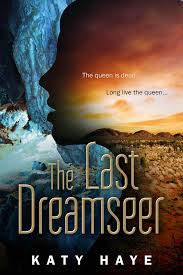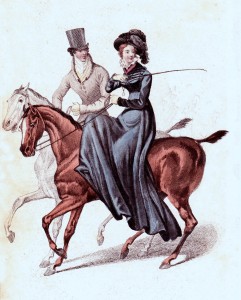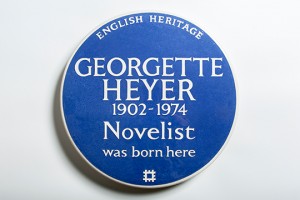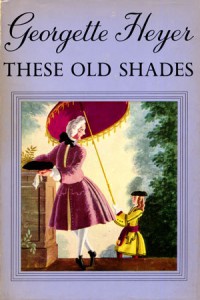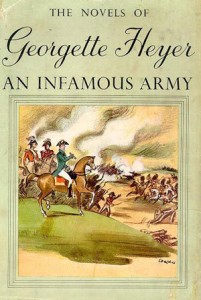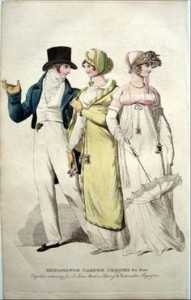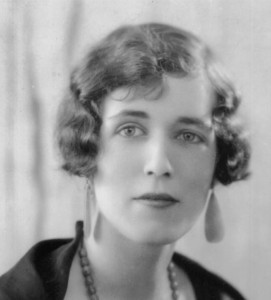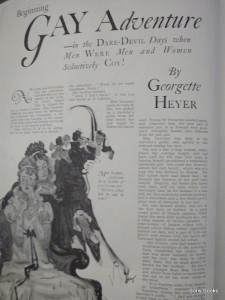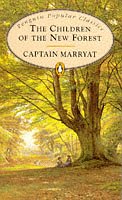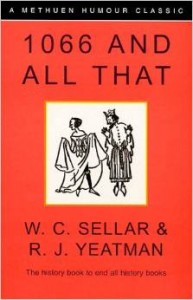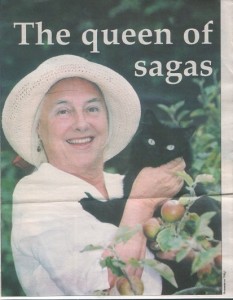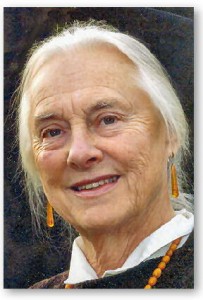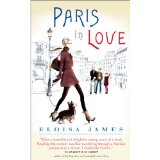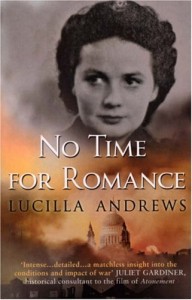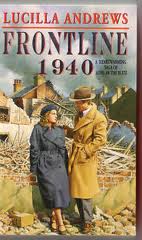Archive for the ‘Books I love’ Category
Can an Orc Change?
Just a year ago I was writing a 5 star review on Amazon for The Last Gatekeeper, a debut Young Adult novel by Katy Haye. Now she has written the second in her Chronicles of Fane series. The Last Dreamseer, and it is out today and, for the launch week only (November 27th – December 4th), the novel is on sale for 99c./99p, after which it will return to a permanent price of $2.99/£2.49. I haven’t read it yet, but I shall, as soon as it’s on my Kindle. Gatekeeper kept me up until the small hours wanting to know what happened.
The arrival of this novel started me thinking about why I so enjoy fantasy fiction and what is special about the Young Adult end of the genre in particular.
And I suppose the first, the universal element is the opportunity it gives us to marvel. In our rationalist world we are taught to deconstruct, analyse, assess, evaluate. All excellent tools to inform judgement. But wonder is another part of ship. You don’t have to suspend judgement, just to experience amazement, that sense of something immense and powerful.
Who ever said the Niagara Falls were a bit chocolate boxy? Who judges the forest? Wind? Water?
A sense of wonder is followed by the desire for knowledge. And this is where we get into territory that Young Adult fiction is so good at. Consider Inkheart by Cornelia Funke, a particular favourite of mine. Or the wonderful Diana Wynne Jones’s Witch Week. (Pretty much anything by Diana Wynne Jones actually.) Or the strange and scary Chime by Franny Billingsley – tag line ‘The story of a wicked girl has no true beginning. Knowledge is good and necessary but it is never enough.
Knowledge on its own cannot find solutions. You also have to overcome fear, understand consequences, have some idea what drives other people and know yourself. And then Choose.
Can you – do you want to –leap mountains in a single bound? Do you go through hidden doors to who knows where?
And this is where much Young Adult fiction is so interesting. It seems to me that Tolkien said there were temptations to overcome and times of trial but your identity was set and the moral path was laid out. An orc was an orc. Writers like the ones I’ve named, including Katy Haye, seem to say that you have to find both for yourself. For someone like me, ineradicably committed to a happy ending, that is irresistible. Maybe someday, somewhere, someone will write the book where an orc finds he’s a gardener. Please.
Georgette Heyer: After the Plaque
Random jottings from the day by someone who felt privileged to be there, along with Georgette Heyer’s family – nephew Major General Jeremy Rougier, daughter-in-law and dedicatee of FALSE COLOURS Susanna, Lady Rougier and grandsons Nicholas Rougier and Noel Flint – friends, countless devoted authors and an extremely enthusiastic home team from Wimbledon.
To start with authorial trivia – we used this illustration from La Belle Assemblee as the back cover of the programme. It was kindly provided by Regency author Louise Allen, from her personal collection of prints. (I feel Miss Heyer would have approved.) We both suspect that it may have been the inspiration for Sophy’s dashing riding habit which she is wearing when she encounters Miss Wraxton and Charles in the Park and Miss Wraxton pointedly only compliments her horse.
I promised that I would put up my take on events on the great day when Georgette Heyer and her birthplace received an English Heritage Blue Plaque. There is a great account of the history and purpose of Blue Plaques on their website . The very first person to be awarded one was Byron. I hope that would have pleasedMiss Heyer – and possibly made her laugh.
There is a truly excellent account of the unveiling — with the bonus of a little trip behind the scenes – by novelist Elizabeth Hawksley.
And then the 50 people who had attended retired to the Garden Hall at St Mary’s Church for tea and fizz, organised primarily by grateful author enthusiasts and the Romantic Novelists Association. We had an advisory panel of mainly Regency writers and Jen Kloester, Heyer’s biographer; I ran the Spreadsheet; while indomitable RNA stalwarts Jan Jones and Roger Sanderson made sure everyone was fed watered and had somewhere to sit. Remove balloons, replace flowers with much loved favourite Georgette Heyer books and you get the picture:
To interpolate another behind the scenes revelation here, the organisers did audition prosecco for the fizz role, on the grounds that is was light, summery and economical. But we rejected it in favour of champagne. Prosecco never achieved a mention in Heyer’s books and she deserved everything as handsome as we could make it. Though, as one gentleman reader pointed out, she mentioned champagne at least as often in connection with boot polishng as she did with quaffing. Maybe we should have had ratafia or orgeat .Yes, OK, I was OIC organisation and am still too close to it!
It was a terrific party – one of the nicest I’ve ever been to. People who had never met before were already chatting as they walked in through the door. There was huge satisfaction at the recognition of Georgette Heyer’s much loved work. For once, you felt, justice had been done. I heard favourite quotations on all sides – ‘I meant a well-bred horse’ ‘Hyde Park soldiers’ ‘a little bit on the go’ — and people who had never met before collapsed into shared laughter over a treasured Heyer moment. Above all it was warm, and friendly and fun.
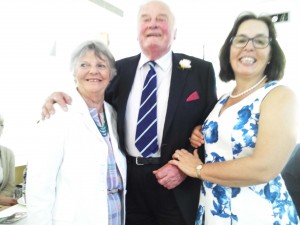
Susanna, Lady Rougier, Maj Gen Jeremy Rougier, Dr Jennifer Kloester
photograph courtesy of Miranda Spatchurst
We were to have favourite readings over tea and it had fallen to me to choose them. As one of the world’s natural democrats, I had asked readers to tell me their favourite book, character and incident. Democracy is a terrible trap. People who wanted the same book, didn’t want the same incident or character. Cat herders of the world unite! In the end we had pieces from THE UNKNOWN AJAX, VENETIA and AN INFAMOUS ARMY. They were all splendidly read by actor Ric Jerrom and each book was the favourite of at least two people present. The company was spellbound. (‘Rapt,’ said my Dearest Friend and Severest Critic, in between buttling for Britain. He had just read AJAX, as his first ever Heyer, and had a lot to take in.) The announcement of VENETIA was received with a gusty sigh of pleasure.

The Pan Edition which was sitting on one of the tables
And yes, that was the scene Ric read, complete with dog.
In my Democratic Consultation on the readings, the winner by a fair margin was AJAX – people even wanted to hear the same scene – the splendidly theatrical final Pageant of Ajax, with Richmond drunk, Claud rising astonishingly to the occasion, and Lady Aurelia, a mere female with every one of her eleven earl ancestors at her back, dismissing the Officer of the Law in one crisp speech. I’ve always admired that scene but, read aloud, it was funny, exciting, humane and touching on so many levels. ‘Great writing,’ said Ric Jerrom, who hadn’t read her before. His is the masterly voice of Jack Aubrey and Stephen Maturin in the audio versions of Patrick O’Brian’s masterwork.
The big romantic title missing, of course, was the perennial favourite, THESE OLD SHADES. And – was it Fate? – the two people who had voted it their favourite, didn’t manage to make the tea. That coincidence gave me a frisson, I admit. Georgette Heyer married in St Mary’s Church in 1925, just six weeks after her father — mentor and greatest friend, who utterly supported and believed in her writing and whose work she critiqued and vice versa – had died suddenly after a game of tennis. It was a terrible loss. But he had already commented on THESE OLD SHADES , perhaps her most joyful book and unashamedly high romance, So the book was ready for publication, with his notes on her ms.
And following the reading of Colonel Audley’s encounter with Captain Kincaid of the 95th from AN INFAMOUS ARMY, Georgette Heyer’s nephew, Major General Jeremy Rougier, told us a brilliant story.
In 1964 he was a military assistant to a member of the Army Board (the top management of the Army) and they paid an official visit to Belgium. On a free afternoon they were taken on tour of the battlefield at Waterloo by the Professor of Military Studies at the Belgium Military Academy. Their guide was fascinating; he knew the position of every regiment at any time on both sides. “At about 3pm Napoleon was standing here – no, here,” he would say, moving 10 foot to record the precise spot. At the end he presented him with a signed copy of Georgette Heyer’s book and explained their connection. ‘He was as near speechlessness as a professor of military history can be,’ said the Major General. ‘He said, ‘This is the nearest to reality that one will ever come without having been there.” And he fainted!’
Allowing for the professor’s excessive sensibility — the storyteller’s dramatic licence was much appreciated — the readers of Georgette Heyer present were gratified but not really surprised.
For this was really a day in which people who knew her worth came together and celebrated that the word was getting out there. I had asked a number of them to give me their personal experience of reading her books. So I want to end this post with the very first reader to send me his contribution. It is a good representative of what we were all saying in our different ways.
‘As a young medical student, I came across ‘The Corinthian’. I think my brother discovered it first. I loved it; I thought it was hilarious and laughed no end. That set me off on reading Georgette Heyer books. I particular like the Regency stories with a nice plot, e.g. ‘The Reluctant Widow, ‘The Talisman Ring’, ‘The Unknown Ajax’, ‘The Toll Gate’ etc. Then I discovered some more historical novels, starting with ‘Royal Escape’ and ‘An Infamous Army’. Finally I came across ‘Envious Casca’ which set me off to reading all her detective stories.
‘In all of these different types of novel, the characterisation is so well done and reading them is such pleasure however often one has read them before. These are books to own and keep permanently on one’s bookshelves (or perhaps on Kindle?), not borrow them from the library. Whenever I am ill enough to retire to bed, I always take a Georgette Heyer book to bed with me to cheer me up.’
He emphasises something it is easy to forget. When I started to help with this celebration, I said to people who muttered about the time I was taking away from my writing to spend on it that a) it was a unique occasion and b) it was a small thank you to Georgette Heyer for a lifetime of interest and pleasure. I said it lightly – well, irritably sometimes — but it was true. A lifetime. And every reader I approached to write something, to help, to come along said the same thing.
So many lifetimes made happier by her books.
What a legacy. What a writer.
Georgette Heyer: The Space Between the Words
Re-reading Georgette Heyer’s work in advance of Blue Plaque Day has been an unexpected voyage of discovery. I’ve loved her books for ever, of course. But typing out an extract from AN INFAMOUS ARMY gave me a real jolt.
It is the morning of the battle of Waterloo. Some men, sleeping out in the cold and wet, have died in the night and everyone is sodden: old soldiers became busy drying their clothes and cleaning their arms; young soldiers stared over the dense mist in the valley to the ridge where the French were beginning to show themselves. Read it aloud, as I did. In two paragraphs she gets all the terror of the impending battle, the imminence of death, the fear of the raw recruits, the numbness of those who have been here before.
And I realised exactly what makes her such a brilliant writer for so many different sorts of readers. It’s in the things she doesn’t say. As Browning had it, she does the thing shall breed the thought. Then there comes that little electrical charge between what she has written and your imagination and suddenly, there you are, seeing what she saw, feeling what you feel.
Consider what Sarah McConnell was saying, in response to my last post, about that agonising scene in SPRIG MUSLIN. We readers have had a picture of Lady Hester – whose family think she’s a born spinster. She runs her father’s household and is regularly called in to nurse or babysit by her married sisters. She’s past the first blush of youth, not very pretty, turned down the only proposals of marriage she ever received and is really a bit vague. Then, suddenly, rich Sir Gareth Ludlow with whom she has been friends ever since his spirited first love died, proposes. She turns him down and he, being a reasonable man, sets out the advantages of the match: her situation is not happy, she would be at no one’s beck and call, with a position of the first consequence and a husband who would not make unreasonable demands.
‘You may be sure that I should always attend to your wishes, and hold you in respect and affection. Would that not mean a happier life than the one you live now?’
Her face was very white; she pulled her hand away, saying in a stifled voice: ‘No — anguish!’
This seemed so strange a thing for her to have said that he thought he could not have heard her aright. ‘I beg your pardon?’ he said blankly.
No more words but it’s all there: the pain of unrequited love and, worse, the sheer awful loneliness of pain unacknowledged and unacknowledgeable. In a sentence. God, she was good.
Or there’s my own favourite, the moment in FRIDAY’S CHILD — which up until then has been pure joy, as if Jane Austen had written Bertie Wooster — when the heroine runs away from her husband and his daft friends try to help her:
She bent her head, looking down at her tightly clasped hands. ‘Sherry – Sherry doesn’t love me, you see. He– he never did love me. If I had not been such a silly g-goose, I should not not have — For he never pretended that he loved me you know.’
George’s face twisted. He came quickly back into the room and laid his hands over both Hero’s and gripped them. ‘I know,’ he said in a moved voice.
She nodded. ‘Yes. I-I thought you did, George. So, you see . . . ‘
There was an uncomfortable silence.
And you see that they are not just daft any more, not even George Wrotham who has been stamping about like Lord Byron at his worst and generally making a cake of himself over the Beauty. The feelings are real. They hurt. You don’t want to spend too much time there, any more than you want to press on a bruise, but you know.
That was when it occurred to me – what a total gift to a film maker. The delicious prose, the mock heroic authorial comments, no you couldn’t put those on the screen. But these moments of truth coupled with some of the best dialogue outside Restoration Comedy or PG Wodehouse – what a treasure trove for a screen writer, for an actor.
Of course, those wonderful Georgette Heyer readers had got there first. There’s even an online petition you can sign. It had 1,238 signatures when I found it.
Now it’s got one more.
Georgette Heyer and her Readers
Fans of Georgette Heyer will feel a quiet sense of satisfaction at the news that English Heritage are to place one of their Blue Plaques on her first home in Wimbledon next month. It is another step towards the public acknowledgement of a truth which, if not yet held universally, has been acknowledged by countless people all round the world for a long, long time. She is a Treasure.
But, as is the case with so many Treasures, we can’t all agree why and, like every writer I know, she does have her detractors. (Shakespeare? Couldn’t plot for toffee. When people praised WS’s manuscript for his ‘never blotting out line’, Jonson wittily replied, ‘Would he had blotted a thousand.’ Killer punch there, Ben.)
Carmen Callil, a woman of whose publishing achievements I am in awe, allegedly opined that Heyer took Jane Eyre and rejigged it 57 times. Not true – Heyer never really hit the Gothick note. And even her most enigmatic and brooding hero has a sense of the ridiculous, which neither Mr Rochester nor Jane quite manages. But I completely see why a lively feminist publisher would take agin books in which the highest good to which the heroine aspires is marriage to an eligible –i.e. always wealthy, often titled — man.
More seriously, an Editorial Director I much admire told me a few years ago that Heyer had badly needed editing. I don’t know how that would have played with the strong-minded Heyer. From her career-long vituperative joust with the respected editor of Woman’s Journal, Dorothy Sutherland (who tried) I suspect that Heyer wouldn’t have put up with it. And if a publisher insisted, it might have shut her up for good. The loss doesn’t bear thinking about.
Mind you, Sutherland’s preferred title for Regency Buck wasn’t great, even without the connotations that have accrued to it since 1935. And her strap line? Words fail me.
–in the Dare-Devil Days when Men Were Men and Women Seductively Coy!
But I don’t mean to talk about my own opinions here. These are not my ideas, but those of her millions of readers. For since the Blue Plaque announcement, I have been trotting through the Forest of Internet in search of Heyer fans and found — well, overwhelmingly more than I expected. Of course there are the Heyer Appreciators, many of whom are to be found at Almacks. And from Mumsnet through The Guardian to Jane Austen blogs and uncountable numbers of bloggers — some loving her for ever, some just discovering her, some arguing furiously over where she did and didn’t do what they wanted (Smart Readers Trashy Books is really good at that) — Heyer’s work is considered seriously by a very high class of reader indeed. They are thoughtful, principled and often terrifyingly well- informed. I take my hat off to them.
So Miss Heyer’s readers say:
- she’s writes a cracking good story
- she’s witty and so are her characters
- in fact humour is the first reason many people read her
- romantic situations are well drawn, romantic satisfaction variable – but since some readers adore a book that others hate, that probably reflects temperamental differences as much as anything
- her style is a delight
- she takes you into a fully realised, detailed world
- her sense of period feels spot on
- her history is well-informed and perceptive – also accessible
- her characters have life, fire and principles, even when they’re not very good ones
- her secondary characters are all three dimensional, intrinsic to the story and sometimes delicious
- her books differ more widely than you’d expect or than she herself seems to have thought
- they re-read her, sometimes again and again, over their whole lives
- the good end happily in her books and if the bad don’t end badly, there is nevertheless a sense that justice has been done
- she gets you through bad times
- she both observes and explodes genre expectations (bit narrow this one, but it interests me, so I’ve bunged it in)
- she crosses generations – I noted how often the commentator found Heyer’s books on the shelf of a mother, grandmother, family friend or shared the long loved pleasure with a daughter or granddaughter.
- she is reticent, not just about her personal life but about the emotional development of her characters and their experience of falling in love. (I’m going to come back to this. I think it’s true, especially in her quieter books and I have come to like it. Some readers don’t so much.)
- she’s fun
- with substance
Attendance at the blue plaque unveiling is now up to capacity.
I’ll maintain a waiting list, if anyone would like to come and doesn’t mind waiting to see whether there’s room. Sorry about that, but delighted that so many people want to come and celebrate Georgette Heyer and her work.
*Byatt, A. S. “An Honourable Escape: Georgette Heyer.” Passions of the Mind: Selected Writings. London: Chatto & Windus, 1991. 258-65.
—. “The Ferocious Reticence of Georgette Heyer.” Sunday Times Magazine 5 Oct. 1975: 28-38. Rpt. In Georgette Heyer: A Critical Retrospective. Ed. Mary Fahnestock-Thomas. Saraland, AL: PrinnyWorld, 2001. 289-303.
Reading discoveries: The Martian
For the last year I have had a professional task which I have found almost impossible. It has made me think about writing in quite a new way. And also about how much the reader always brings to a book. For a first read, the writer is a sort of tour guide to the author’s interior landscape and the world of the story. But what the reader takes away is so much more than what the guide actually says. It depends on the reader’s habits, tastes, experience, expectations and even previous reading.
This month I found The Martian by Andy Weir. I fell over it by chance, browsing. It’s science fiction, a genre I like rather than love and by which I am often disappointed. This one was brilliant.
I ended by sitting up until 3.45 am to finish it because I couldn’t go to sleep without knowing the end. But it was about so much more than the ending. It sets up a series of dilemmas which mostly seem irresolvable until a cast of believable characters apply brain, body and will. The stakes are life or death right from the start — and then they escalate! The sciences — physics, chemistry, thermodynamics, even agriculture – almost become characters. One by one they are tested and may or may not betray our hero. I was on the edge of my seat, not just at the end but again and again throughout this thrilling book.
Now I need to buy a physical copy; e-book is not enough. This is one I will re-read, probably many times. Why did I LOVE it so?
Well, excitement, obviously. It’s a cracking book by anyone’s standards, written with passion. Andy Weir sounds an interesting guy from his interview, a self-proclaimed nerd who initially self-published his book of the heart. He might not call it that, of course. But note: he says ‘The deeper into the book I got, the more excited I became.’ Yup. Been there. Bliss. And it leaks out to the reader, believe me.
But what did I, the reader, bring to the experience? Me, non scientist, non nerd? I’m even terrified of changing from Windows XP, for God’s sake.
Though I did enjoy physics at school. And, of course, I plant stuff and sometimes it grows. That’s two things I share with The Martian. I like the way he goes about it, too. He evaluates, considers his options, works out an idea in principle, refines it. Yes, I do that. Sometimes. Then he puts his plans into practice in an orderly way. Um no, I could learn from him there. And he’s attractive. He feels all the things that I would feel but he doesn’t panic. And he’s heroically fair and philosophical. I find both pretty sexy.
In fact I once asked a group of romantic novelists which was the quality they most loved in a hero: looks? wealth? power? sophistication? biting wit? fond-of-dogs? ‘Competence,’ said one. Ah yes. We all went a bit dreamy. Well, the Martian is definitely the sort of guy who could put up a shelf and start the car on a cold day, if that’s your preferred lust object.
And I have been in love with one of the Martian’s literary ancestors for most of my life. In Victorian England a retired Naval Officer called Marryat wrote a book for children about a family of Royalist orphans who were rescued and hidden by their gamekeeper after the Battle of Naseby. Marryat was definitely a Cavalier by inclination and his hero is undoubtedly the hotheaded eldest son. But I loved his younger brother, Humphrey, who works out how to damn streams, catch eels and generally make life manageable and, above all, interesting.
But then, in reading The Children of the New Forest, I had already picked up the 1066 And All That view of the Civil War – Cavaliers, wrong but romantic; Roundheads, right but revolting. And to be fair to Marryat, he does manage one decent Roundhead, at least.
The world of The Martian is Roundhead-free. Nor is this science fiction with monsters and aliens. This is about real people. Lots of them. Yes, our hero is on his own. We tune into his interior monologue, all of it, including the stuff he doesn’t tell anyone else, even when he can. It is like being in our own heads. But there’s all the other people involved. There they are, wheeling remotely like the rings of Saturn – close colleagues, family, Management which could make a story in itself) along with office politics, media politics, even, at one point and very convincingly, international politics. The decisions in this book are not wholly the Martian’s. Other people’s plans are crucial to his survival. And everybody makes mistakes.
So there’s
- exciting plot
- author persuasiveness (bit mealy mouthed but can’t think of another short way to describe it)
- fabulous hero
- world of the story
- AND? – well, humanity.
The Martian has a generosity of spirit about his fellow man, as we learn in the first couple of pages, while he’s calculating how long he’s got to live. Mostly he’s not wrong. It makes for a mind-blowing climax.
Great character. Great book.
GUEST POST Beryl Kingston
Welcome to the first guest I have hosted on my blog, distinguished novelist Beryl Kingston, whose Easter Empire trilogy (inspired by the fact that a woman founded WH Smith) was a favourite, long before I met her, let alone enjoyed the privilege of her friendship.
Like me, she has been tagged to contribute to the Writing Process blog roll, in her case by lovely Mary Stewart-inspired author, Jan Jones. Over to Beryl
My Writing Process
What am I working on?
This is going to sound like showing off but at the moment, after three and a half years when I couldn’t write at all, I’m polishing off a collection of poems, a play about William Blake’s trial and a novella about a conceited cat, all of which are taking me in different directions.
How do my stories differ from others in my genre?
I suppose the honest answer is that I don’t know. My first agent, the renowned Darley Anderson wanted me to be classed as ‘a romantic writer’. I never thought I was.
Why do I write?
I started writing when I was seven because I knew I wasn’t allowed to tell anybody about what was happening to me and I had to tell someone so I wrote it all down in a diary, which was private. Now it is because I enjoy it and there are always tales to tell.
How does my writing process work?
I used to assume that my writing method was more or less what other writers did, if I thought about it at all, but then I got to know other writers and discovered I was odd. There is a pattern to it though and a method, of sorts, and it works for me.
I spend about three months getting to know my main characters, what they think and why, how they talk to a variety of people, what and who have made them what they are. I do it until I can live in their skin. It’s rather like method acting. At the same time I visit the settings for my story. (I used to love doing that when Roy was alive. It was like a holiday.) I try to find a different setting for each new book and make several visits in the course of a year so as to see the place in all four seasons and different kinds of weathers. I fill notebooks with as much detail as I can get. Then when I’m living under the skin of my protagonists, and the plot has begun to form out of all the things that are going to happen to them, I start to write.
I don’t begin at the beginning of the book and plough on doggedly until ‘The End’. I’m much too self-indulgent for that. I start with the scene that’s singing to me most strongly. In my first book it was the moment my hero sees the woman he’s going to marry, in another it was the Battle of Trafalgar, in another it was when my heroine meets up with anti-road protesters and sees her first demonstration. Then I move on to other scenes I fancy. When I’ve got what I call a run, a series of scenes that ought to run in sequence, I stitch them together. It’s rather like making a patchwork quilt and it’s a very useful part of the process because, if I’m reading something and it’s boring me because I want to get on to the next ‘good bit’, I simply cut it out, and if I see moments that have – or will have – ‘echoes’ I can work on them too. Eventually so many runs are stitched together that I have a book. It’s a very satisfactory way to write – at least for me – although it does look a muddle.
Shared Pleasures: Paris in Love by Eloisa James
I don’t normally make New Year Resolutions but this one has been growing in me for a while. Unexpected pleasures are a gift from the universe. I should take the time to share them. So this is my first.
At a point in 2012 when life was full and sad, my good friend Anne Gracie sent me the present of a memoir by Eloisa James, who I knew only as a US historical romance author. It was about a year in which James lived in Paris with her family.
Now, I have to admit I’m not a fan of Paris. My pen friend lived in a suburb (Plessis Robinson) and pretty much every trip we made into the city was attended by one of those humiliations which the Parisians are so good at dealing out. I admit that the agony can still sneak up on me, sandbag in hand, when I’m on the underground sometimes and my mind is drifting.
I don’t hate France, you understand. I enjoy Bordeaux, love Beaune, was enchanted by Cannes when I went there with Anne McAllister researching one of her books. But Paris?
There used to be a book of classic photographs to which some wit had appended appropriate captions. One of the pictures was a gargoyle from Notre Dame, a bitter, bored, resentful devil of a gargoyle, with its chin in its despairing hands and its tongue out. The caption? I hate Paris. I was with that gargoyle every step of the way.
Well, Eloisa James has changed all that.
She went to Paris with open eyes and an open heart and she has found treasure. She writes delectably (and with truly Christian lack of envy) about the artisan chocolate delights, the elegance of the women, odd corners she finds and the food, some of which is still melting away in my imagination, some of which is stomach-turning. She encounters a superior waiter of the species I remember with a shudder and she and her husband, responsible parents that they are, retreat from the restaurant to scream at each other out of sight of their offspring.
The book started life as a blog and most of the entries are effectively snippets, intensely observed, often witty, sometimes heartfelt, encapsulating a moment as perfectly as a sonnet. This is a book you can genuinely read in an odd moment, when you need respite or you’re waiting for bread to rise, and take something of substance and delight from it.
She takes longer to ponder bigger things. The neurosis that I suppose all writers share about losing words leads her to decide to start memorising poetry again, which I shall emulate. Her first is Auden’s Lonely Betters,which hitherto I would have said I mildly disliked, along with what I know of Auden, it has to be admitted. But reading it after James’s thoughts on her own language and her father, the poet Robert Bly, gave it a resonance which will have me return to the poem, I know.
A surprising, thoughtful and charming book. I loved it.
Still not sure about Paris, though.
A Prescient Author: Lucilla Andrews
This week I joined the Fulham Women’s Institute to talk about romantic fiction over the last 50 years. Predictably, a combination of lively questions and a (slight, very slight) tendency to beady-eyed obsessiveness on my part, bounced me off course into general appreciative splurge.
So I never told them, as I had meant to, about one of my heroines. I had a great time, but I’m afraid I short-changed them. This is an apology and an attempt to supply the deficiency of my talk.
Lucilla Andews died on October 3rd 2006. The Romantic Novelists’ Association had given her a lifetime achievement award barely two months earlier. She had sold getting on for 3 million books round the world. Drawing heavily on her own experiences as a nurse at St Thomas’s during the War, she became what the Guardian newspaper described as “the brand leader of hospital romance”. (Do you detect a hint of the patronising, perhaps?)
She was published in 11 languages. Her career spanned forty years. For the first ten years of Public Lending Right in the UK she was in the top 50 authors borrowed from Public Libraries. She wrote 35 novels and an autobiography, No Time for Romance, which is an unforgettable account of wartime from the point of view of one of the ordinary people whose lives were utterly transformed by it.
She was left the sole breadwinner by her husband’s illness very soon after marriage, when her only child was five months old. For the rest of her life she earned her living from writing. The books and short stories ensured that her daughter had a stable, loving and stimulating home – and the sort of education that Lucilla had not had herself. Veronica went to Cambridge, read history and became communications adviser to the Labour Party among others– a towering presence, according to her obituary in The Guardian. Veronica died in 2002. It must have been dreadful.
But when I saw her in Edinburgh, on the occasion of that Lifetime Award, Lucilla Andrews talked about Veronica’s achievements and the fun they had together, not the loss. She made it clear, too, that she, personally, was passionate but never doctrinaire about women’s rights. She had a right to be. She had, after all, paid her dues.
Her writing also made not inconsiderable amounts of money for publishers and agents, at various times. This, you would say, was a woman of energy and intelligence, of vision and some moral force. Was she listened to with respect?
She was not.
In 1955 she suggested to her publisher that it would be timely to make a television series based on her imaginary hospital St. Martha’s. A hospital was, she argued, a microcosm of society; it was full of drama as well as “humour, absurdites, incompatible temperaments and love affairs”. Her books were successful. Her writing skills were proven. Above all, her knowledge of the background was unrivalled. (She did not say this, you understand. She may have thought it was self evident, as it certainly should have been.) As she later said in her autobiography, she drew on her nursing experience “without falsification”. Her former colleagues on the Nursing Times, said that her novels were “faultless in their settings … stoical, spirited, humane.” Doesn’t sound trivial, does it?
Television needed drama. The time was surely right. So what happened, when she suggested her hospital series?
Flat rejection. Specifically, “Oh no dear, that may do for women’s magazines but it won’t do for television.” Men, you see, watched television. They would not be interested in little stories for women.
And then came . . . Dr Kildare; Emergency Ward Ten; Angels; blah, blah, blah … right up to our own day of Casualty; Grey’s Anatomy, Green Wing and dozens of others.
Did anyone ever say to her, “Sorry Lucy, you were right?”
Nope. Even though, according to a Harrap’s representative from the old days who made it to the Memorial Service, the office was waiting for her ms to arrive so that they could whisk it off to printing, with minimal editorial, to get it out there and earning. But they never thought she was worth listening to. It makes me so angry.
And these days she is largely forgotten, which is a waste. Her accounts of wartime, whether fictional or memoir, are electrifying. If you want to know what it was like to be a nurse in St Thomas’s during the Blitz, read Frontline 1940. The hero, an American journalist, has been present during the fall of Paris and he expects London to fall too. This is what it was like to expect to be defeated and hope to hang on for just one more day.
Please read it, Fulham WI and World. It’s worth it.
